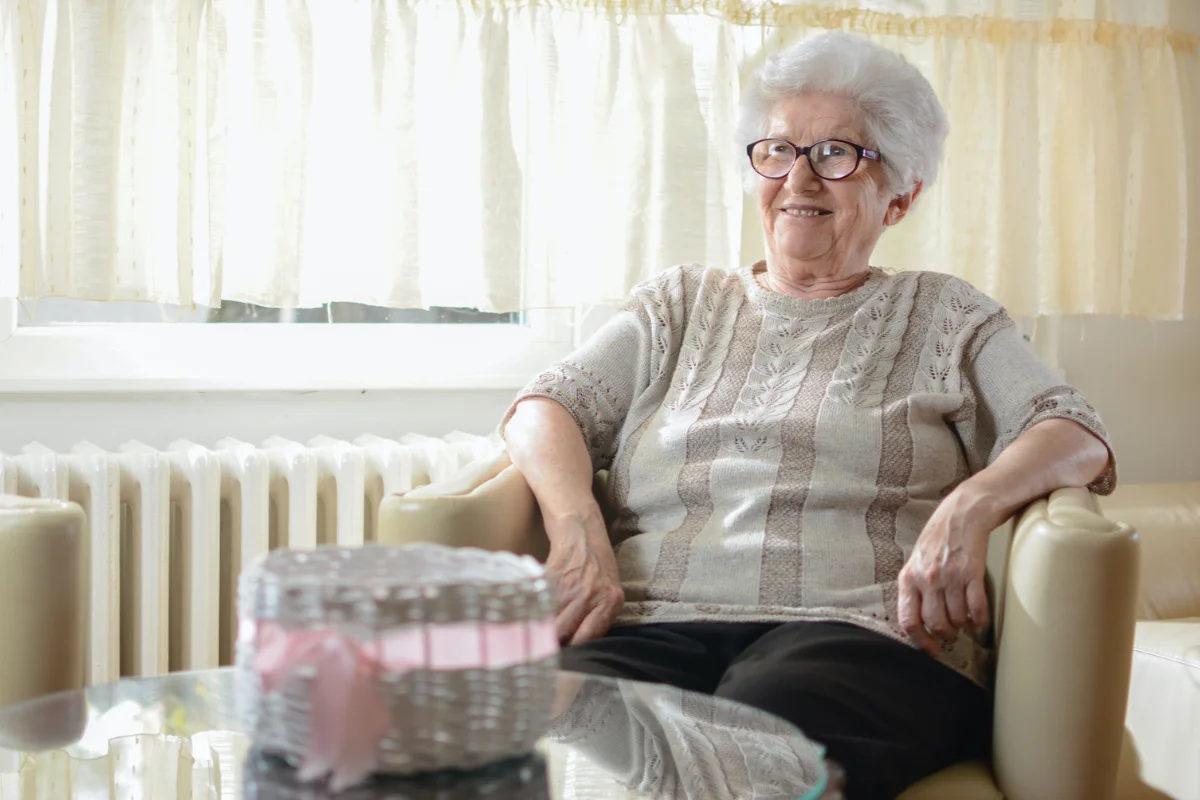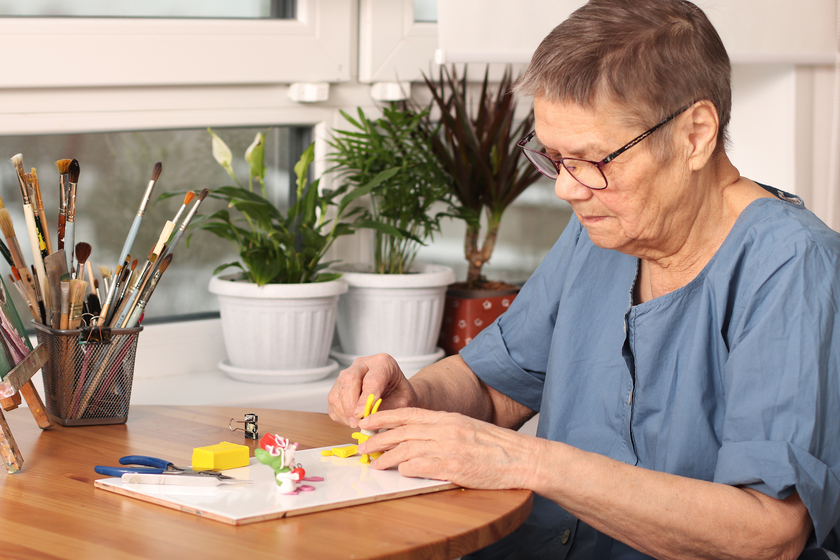Personalized Memory Care for Dementia in a Warm Space
Personalized Memory Care for Dementia in a Warm Space
Blog Article
All Concerning Memory Treatment Providers: Why Small Memory Treatment Residences Are a Fantastic Choice
Memory care solutions play a necessary function in supporting individuals with Alzheimer's and dementia. Small memory treatment homes attract attention for their tailored approach and intimate setting. With reduced staff-to-resident ratios, these homes foster more powerful links and tailored treatment. Locals gain from boosted social communications and a risk-free environment. As households check out options, understanding the one-of-a-kind advantages of small memory care homes becomes essential. What aspects should be considered when choosing the ideal home?
Understanding Memory Treatment Solutions
While many might be familiar with basic senior care choices, understanding memory care services is important for households dealing with the obstacles of cognitive decline. Memory care specifically accommodates individuals with conditions such as Alzheimer's condition and various other types of mental deterioration. These solutions give an organized atmosphere that focuses on enhancing the high quality of life for locals through specialized care and support.Memory care centers are created to assure security and security, commonly featuring safeguarded environments to stop wandering. Educated staff members are available around the clock to help with daily tasks, medication management, and personal care. In addition, memory care programs typically consist of cognitive excitement activities, customized to involve residents and promote mental well-being. Family members can gain from recognizing these services, as they allow educated choices concerning their enjoyed ones' care, ensuring that their particular demands and choices are attended to in a thoughtful and encouraging fashion.
The Benefits of Tiny Memory Care Residences
Little memory care homes provide distinct advantages that can significantly improve the lifestyle for residents with cognitive disabilities. One significant benefit is the intimate environment, which permits for tailored communications among staff and locals. This smaller setup fosters significant relationships, minimizing sensations of seclusion and anxiety often experienced by individuals with memory issues.Additionally, the lower staff-to-resident proportion in tiny memory treatment homes allows caregivers to provide more mindful guidance and support. This method not only improves security but likewise promotes a complacency for the residents.Moreover, tiny memory treatment homes can adjust swiftly to the unique requirements and preferences of each local, enabling for an extra homelike ambience. Such an environment can urge social interaction and participation in activities, ultimately improving the everyday experiences of those dealing with cognitive impairments.
Personalized Treatment Plans for Locals
Customized care plans are important in memory treatment homes, as they deal with the unique demands and preferences of each homeowner. These plans start with detailed evaluations conducted by knowledgeable professionals, that review cognitive capabilities, clinical background, and personal interests. This customized approach assurances that care is not just reliable however additionally respectful of each person's dignity and autonomy.Moreover, individualized treatment strategies are versatile, enabling modifications as homeowners' requirements develop with time. This flexibility promotes a complacency and experience, which is important for individuals living with memory obstacles. Caretakers are trained to execute these strategies continually, offering support that aligns with the homeowners' routines and preferences.Ultimately, customized care plans enhance the top quality of life for homeowners by advertising engagement, self-reliance, and health, making them a basic element of memory treatment services in little memory treatment homes.
Producing a Home-Like Environment
Producing a home-like environment is critical for promoting convenience and familiarity in memory care settings, as it substantially impacts residents' psychological well-being. Tiny memory care homes typically focus on individualized touches, such as warm color palettes, family members photos, and acquainted furniture arrangements, which help homeowners really feel much more comfortable. Including components similar to a conventional home, like comfy home and public areas, encourages a feeling of belonging.Moreover, making use of all-natural light and outdoor areas can boost the environment, advertising relaxation and peace. Employee play a significant role in preserving this atmosphere by involving with homeowners in a compassionate manner, treating them like family members. Routine activities, such as food preparation or gardening, can also contribute to a home-like feel, using possibilities for residents to take part in meaningful experiences. On the whole, creating a nurturing environment supports cognitive function and psychological stability, making it a crucial aspect of memory treatment services.
Improved Social Interaction and Neighborhood
Improved social interaction and neighborhood are crucial components of memory care services. By cultivating individualized social interaction and producing a family-like environment, these services advertise significant links among homeowners. Group events and activities even more motivate involvement, aiding people feel extra consisted of and sustained.
Individualized Social Interaction
While social communication is vital for overall health, lots of people with memory impairments typically battle to engage meaningfully with others. Personalized social engagement in memory treatment homes addresses this obstacle by creating customized activities that accommodate citizens' one-of-a-kind passions and capacities. By concentrating on private preferences, caretakers can cultivate links that reverberate deeply with everyone. Tasks such as art therapy, music sessions, and led conversations advertise cognitive stimulation and psychological expression. Furthermore, small team settings encourage friendship and allow for more intimate communications, enhancing feelings of belonging. This approach not only fights feelings of isolation yet likewise empowers locals to preserve a feeling of identification, eventually adding to boosted mental wellness and quality of life.
Family-like Environment
In a memory care setup, promoting a family-like ambience greatly boosts social interaction and builds a feeling of neighborhood amongst residents. Smaller memory care homes usually prioritize intimate settings, allowing homeowners to create closer links with each other and personnel. This nurturing ambience promotes count on, which is crucial for individuals with memory disabilities. Citizens are most likely to involve in conversations and share experiences, creating an encouraging network that alleviates feelings of isolation. The familiarity of common spaces and routines contributes to a sense of belonging, better motivating social communication (personalized memory care). In such settings, emotional bonds grow, leading to enhanced general health and a better of life for residents as they browse their day-to-day experiences together
Group Activities and Occasions

Security and Safety And Security Attributes in Tiny Residences
Many little homes designed for memory care integrate important safety and security and safety functions to ensure the health of locals. These homes commonly make use of safe entrance and leave indicate stop wandering, a common issue amongst people with memory problems. Furthermore, monitoring systems and alarm devices enhance tracking, making certain that team can without delay reply to any uncommon activities.Interior layouts are customized for safety, with minimized threats such as sharp edges and clutter-free paths. Handrails and non-slip flooring are usually mounted to minimize the danger of falls. Team member are learnt emergency procedures, guaranteeing they are prepared for numerous situations.Moreover, personalized care strategies may consist of assessment of private safety and security needs, offering customized services for each and every local. In general, these safety and security and safety functions develop a nurturing setting where locals can flourish while preserving their self-respect and independence.
Just how to Choose the Right Memory Treatment Home
How can family members guarantee they choose one of the most appropriate memory treatment home for their liked ones? The choice requires cautious factor to consider of a number of factors. First, households must review the center's staff certifications and training, making sure that caretakers are experienced in learn the facts here now taking care of memory-related problems. Next off, it's essential to evaluate the home's setting, concentrating on security functions and whether it fosters a feeling of neighborhood and belonging. Checking out the facility can give insight right into day-to-day activities and the social ambience, which are essential for psychological stimulation and psychological well-being. In addition, family members ought to ask concerning the treatment strategies provided, guaranteeing they are customized to private demands. Finally, taking into consideration the home's area and accessibility for family members brows through can add to a smoother shift. By addressing these aspects, households can make an enlightened choice that prioritizes their liked one's convenience and high quality of life in a memory care setup.
Often Asked Questions
What Credentials Should Staff Members in Memory Care Homes Have?
Personnel in memory care homes ought to have appropriate certifications, experience in dementia treatment, solid communication skills, and empathy. Ongoing training in behavioral management and healing treatments enhances their capacity to sustain citizens properly.
Exactly How Do Memory Care Services Differ From Standard Assisted Living?
Memory treatment solutions focus especially on people with memory disabilities, providing customized assistance and structured environments. In comparison, conventional assisted living offers general support with day-to-day tasks, lacking the tailored technique needed for those with cognitive challenges.
What Kinds of Tasks Are Provided in Memory Care Houses?
Memory care homes typically provide a variety of activities designed to involve residents. Common alternatives consist of art treatment, music sessions, cognitive games, physical exercises, horticulture, and get-togethers, all focused on boosting well-being and cognitive function.
Can Residents Bring Their Own Belongings to Memory Treatment Residences?
Locals can typically bring their very own personal belongings to memory treatment homes, allowing them to individualize their living area - personalized memory care. This practice assists develop an acquainted atmosphere, advertising convenience and a feeling of identification for the individuals

Just How Are Relative Associated With the Care Refine?
Household participants play a vital role in the treatment procedure, commonly participating in decision-making, participating in care conferences, and providing emotional assistance. Their participation cultivates a joint environment, improving the homeowner's general health and lifestyle. While numerous may be familiar with general elderly treatment choices, comprehending memory care services is essential for family members dealing official source with the challenges of cognitive decrease. These solutions offer a structured environment that concentrates on enhancing the high quality of life for locals via specialized treatment and support.Memory treatment facilities are made to ensure safety and security and safety and security, often including protected atmospheres to protect against straying. Personalized treatment strategies are important in memory treatment homes, as they provide to the one-of-a-kind requirements and preferences of each citizen. Team members in memory treatment homes should have relevant qualifications, experience in mental deterioration treatment, solid communication abilities, and concern. Memory care solutions concentrate particularly on individuals with memory impairments, giving customized assistance and structured settings.
Report this page